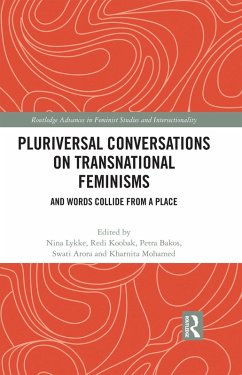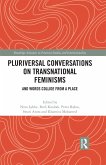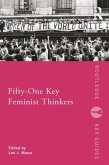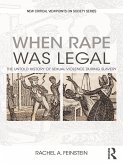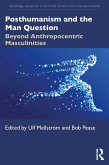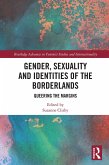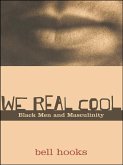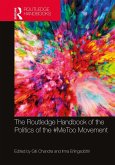A main focus of the volume is methodological. It asks how an engagement with transnational, intersectional, and decolonial feminisms can stimulate border crossings. Boundaries in academic knowledge-building, shaped by the limitations imposed by methodological nationalisms, are challenged in the book. The same applies to boundaries of conventional · disembodied and ethically unaffected · academic writing modes. The transgressive methodological aims are also pursued through mixing genres and shifting boundaries between academic and creative writing.
Pluriversal Conversations on Transnational Feminisms is intended for broad global audiences of researchers, teachers, professionals, students (from undergraduate to postgraduate levels), activists, and NGOs, interested in questions about decoloniality, intersectionality, and transnational feminisms, as well as in methodologies for boundary transgressing knowledge-building.
Dieser Download kann aus rechtlichen Gründen nur mit Rechnungsadresse in A, B, BG, CY, CZ, D, DK, EW, E, FIN, F, GR, HR, H, IRL, I, LT, L, LR, M, NL, PL, P, R, S, SLO, SK ausgeliefert werden.
Prof. Neda Atanasoski, Dept. of Women, Gender and Sexuality Studies, University of Maryland College Park, USA; Author of Humanitarian Violence: the U.S. Deployment of Diversity (2013)
"This volume of outstanding essays contributes to current conversations on pluriversality, by bringing together transnational, intersectional and decolonial feminist methods and perspectives. It draws on a multiplicity of locations and modes of knowing and forms of writing to radically rethink key questions around justice and solidarity, for feminists across the Global North and South."
Prof. Srila Roy, University of Witwaterstrand, South Africa; Author of Changing the Subject. Feminist and Queer Politics in Neoliberal India (2022)
"This edited collection is, as Marisol de Cadena and Mario Blaser (2018) express it "A world of many worlds", capaciously conversing across South/East/North/ West disparate contexts, using a smorgasbord of academic and creative genres to transgress methodological nationalism. It is an experimental and adventurous text, which includes both emerging and seasoned academic voices. One gets the feeling that the process of pluriversal conversing and writing the book was as significant as the book product for the authors."
Vivienne Bozalek, Emerita Professor, Department of Women's and Gender Studies, University of the Western Cape, South Africa; Co-editor of Higher Education Hauntologies. Living with Ghosts for a Justice-to-come (2021)

